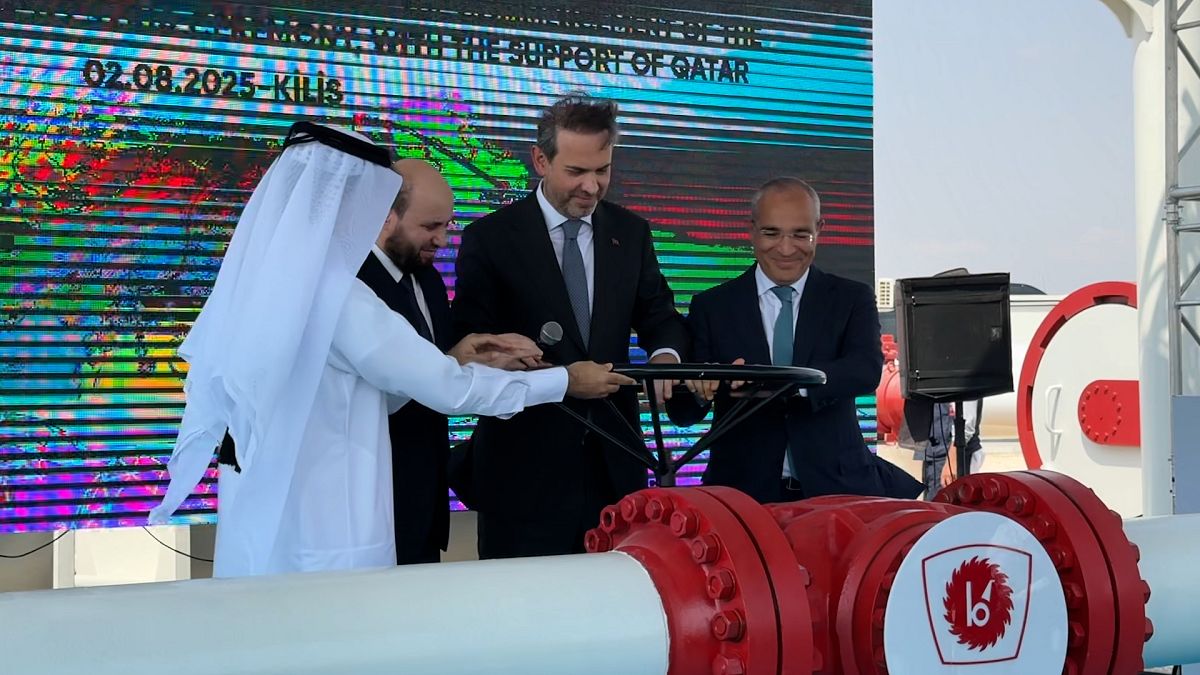

In a world that constantly evolves, nations continue to seek ways to foster peace and stability. Recent developments across different regions highlight significant strides towards achieving these noble goals. Understanding the interconnectedness of these efforts can offer hope in addressing some of today’s most pressing challenges.
One noteworthy development is the inauguration of the Kilis-Aleppo natural gas pipeline, marking a significant collaboration between Turkey, Qatar, Azerbaijan, and Syria. This project aims to enhance energy access by supplying natural gas to Aleppo, Syria’s largest city. The pipeline is expected to provide electricity to approximately five million households. Such infrastructure projects represent more than just economic benefits; they serve as a foundation for long-term peace and the possible return of displaced Syrians, as articulated by Alparslan Bayraktar, Turkey’s Minister of Energy and Natural Resources. Bayraktar has urged European nations to support these infrastructure projects, signaling a strategic approach to address migration and displacement that looks beyond immediate responses.
In a parallel development, European migration dynamics have come under focus as leaders from Italy, Turkey, and Libya convened to address the complexities of migration flows into Europe. The United Nations refugee agency (UNHCR) reports that over 32,000 refugees and migrants made the perilous journey from Libya to Europe in 2021, more than doubling the previous year’s figures. These consultations aim to create more responsible and sustainable migration policies that respect human dignity, demonstrating a commitment to addressing the root causes of migration to reduce the need for dangerous crossings.
Further echoes of diplomatic progress can be heard in Eastern Europe, where peace efforts between Ukraine and Russia are cautiously advancing. Ukrainian President Volodymyr Zelenskyy has openly called for direct discussions with Russian President Vladimir Putin, following hints from Moscow about its willingness to engage in peace negotiations. Zelenskyy emphasized Ukraine’s readiness to partake in leader-level talks at any opportunity. For Zelenskyy, these talks should be an incontrovertible move towards ending the conflict with dignity, rather than a strategic maneuver to delay sanctions or prolong hostilities. This potential testament to diplomacy underlines the need for sincere and continued dialogue to achieve lasting peace.
Together, these initiatives reveal a global tapestry of cooperation and strategic foresight, aimed not just at resolving immediate crises but also at laying the groundwork for enduring stability. Whether through infrastructure that powers homes and hope in Syria, or through carefully orchestrated negotiations across Europe, these actions affirm a shared vision of peace that transcends borders. They remind us of the resilience and ingenuity required to craft solutions in our interconnected world. In each step, there is a silent yet potent testament to humanity’s capacity to mend, collaborate, and build for the future. As we reflect on these developments, there’s space for optimism—for they tell us that even amidst challenges, the path to reconciliation is illuminated by collective will and hopeful endeavor.
Source: {link}
